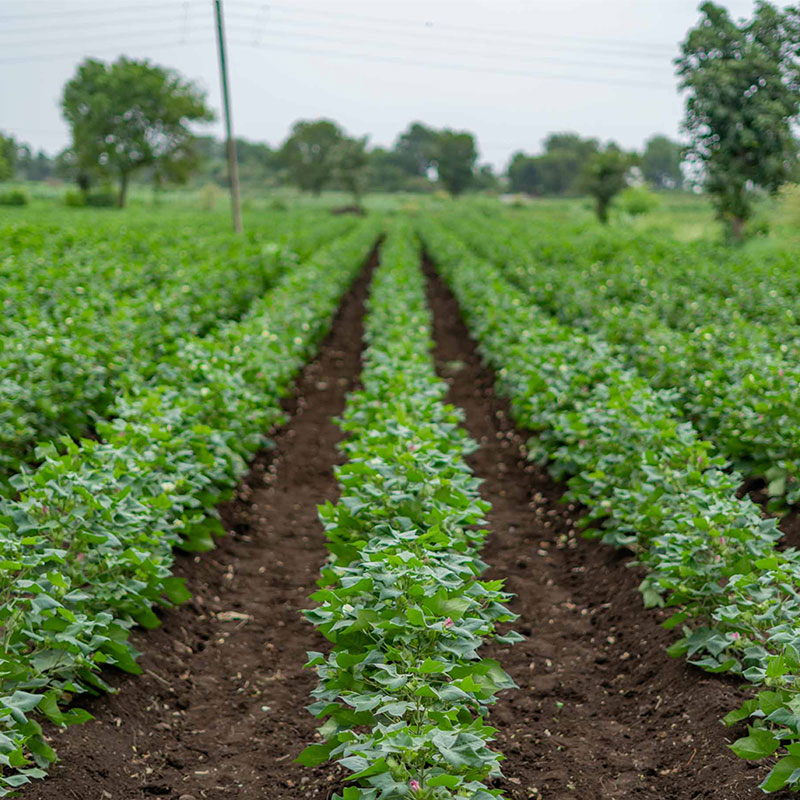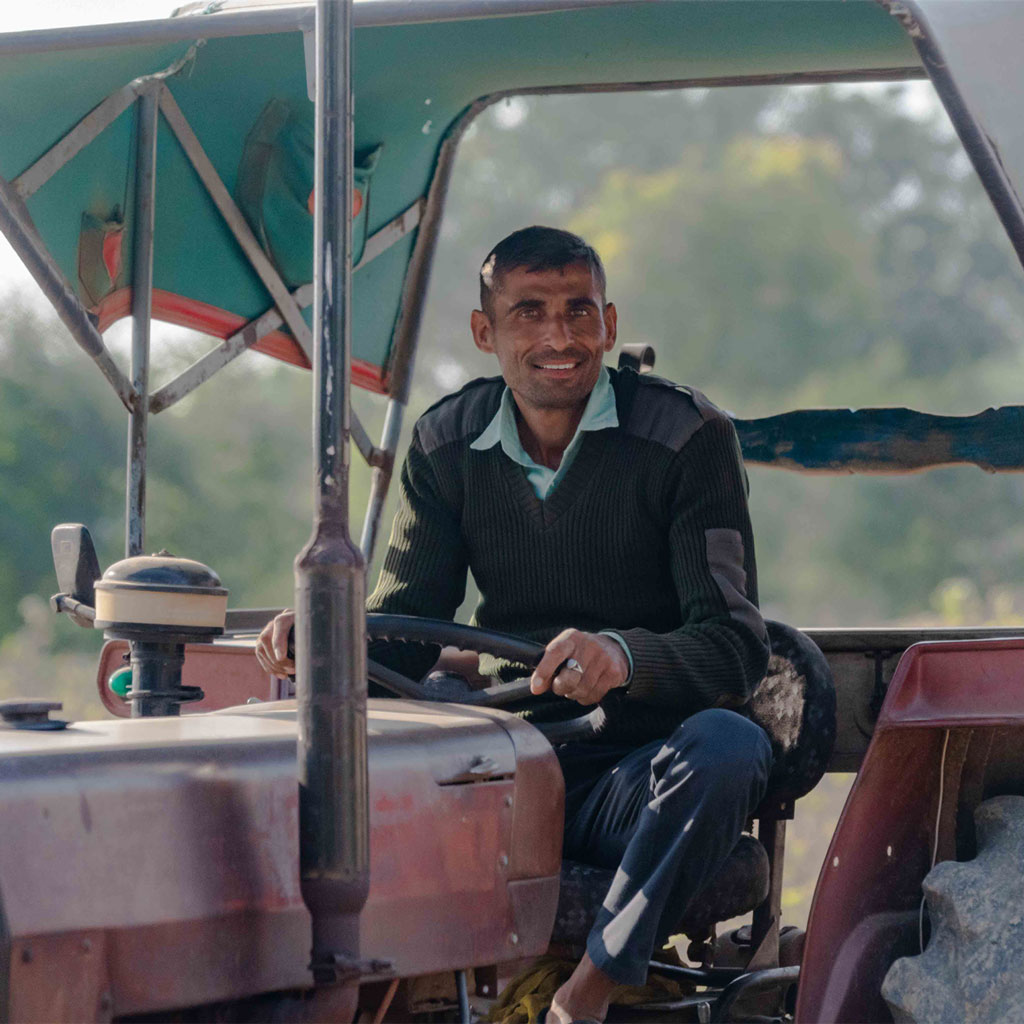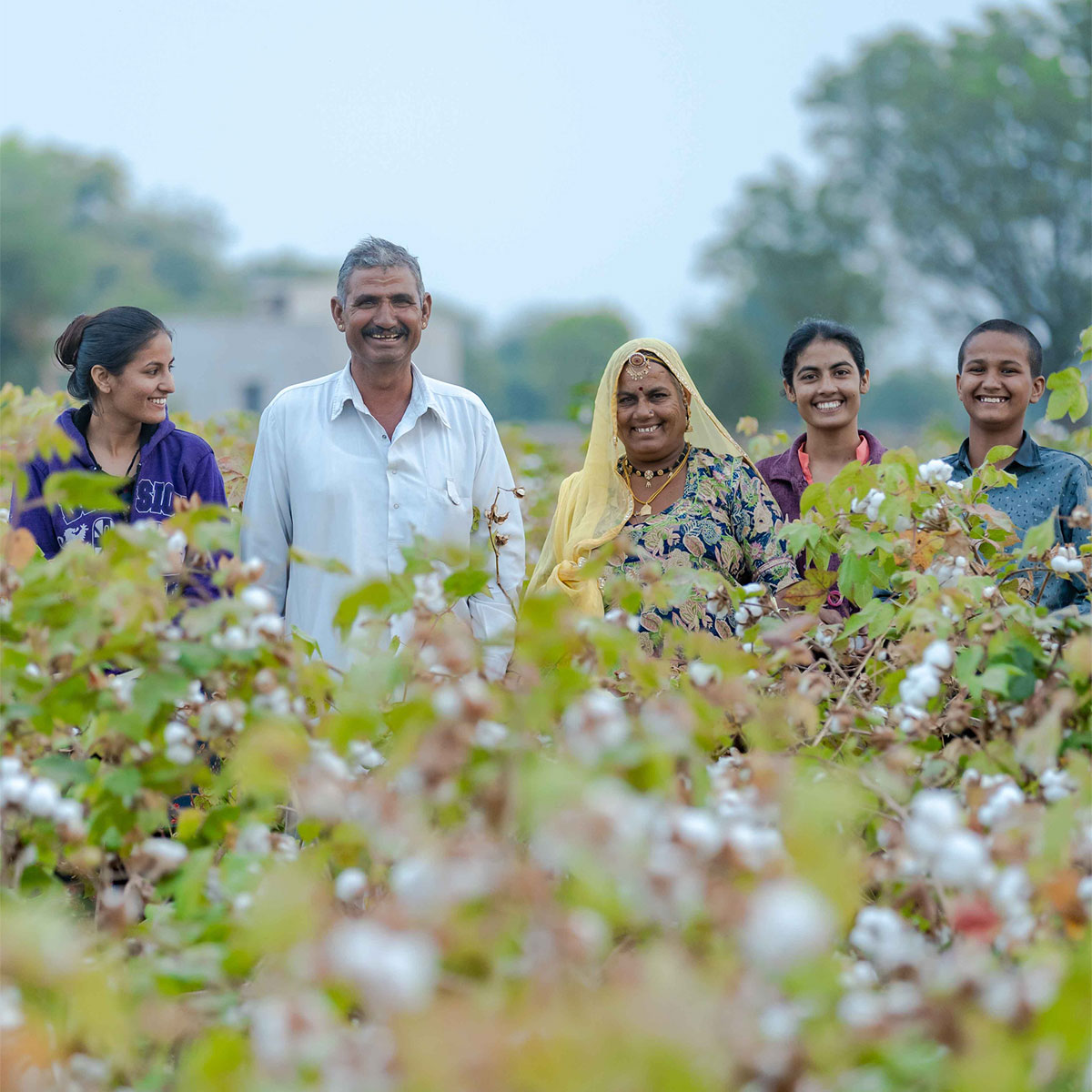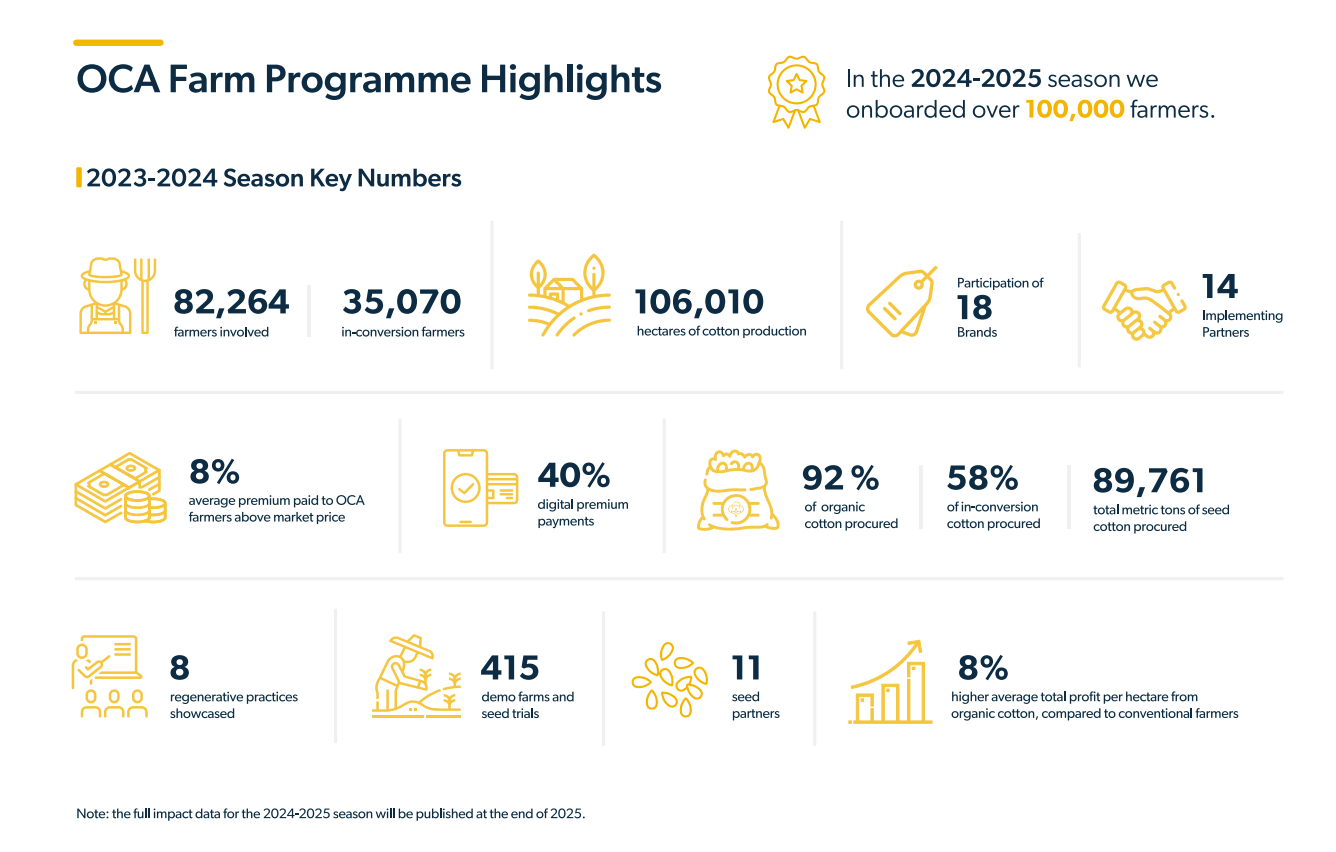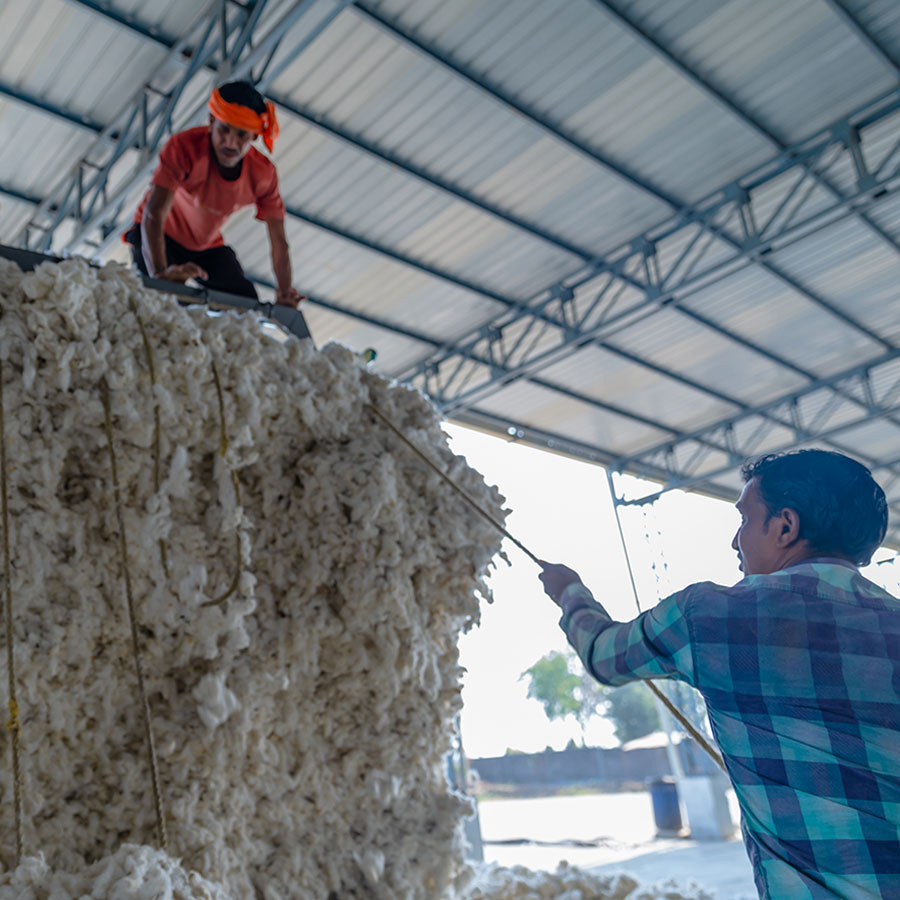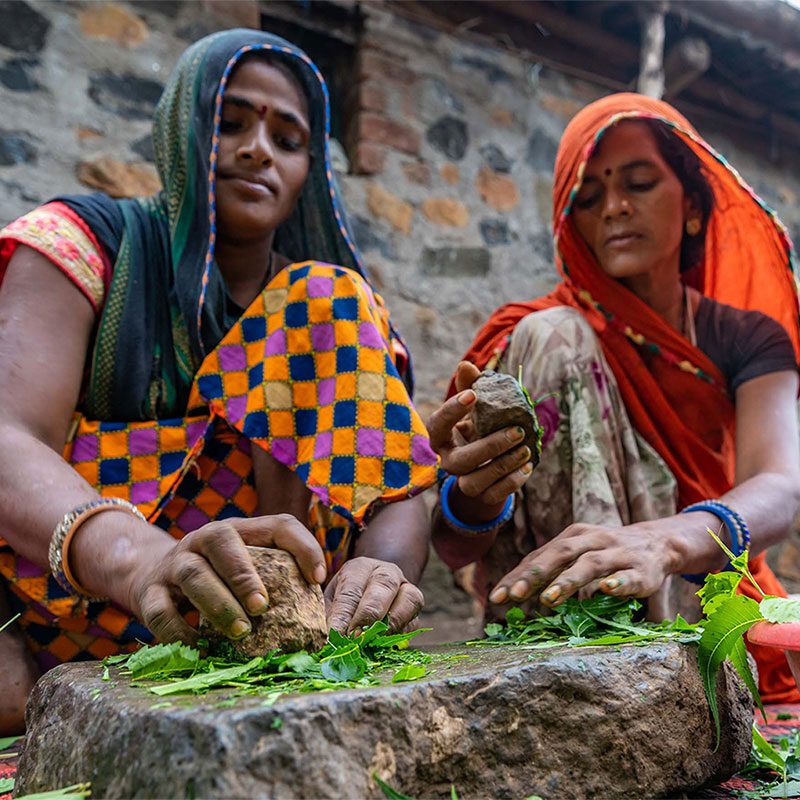Growing Farmer Resilience and Livelihoods
We’re here to support and incentivise farmers to practise organic cotton cultivation. Securing long-term commitments with global brands means we can prioritise farmers’ financial stability and improve their access to training and inputs.
